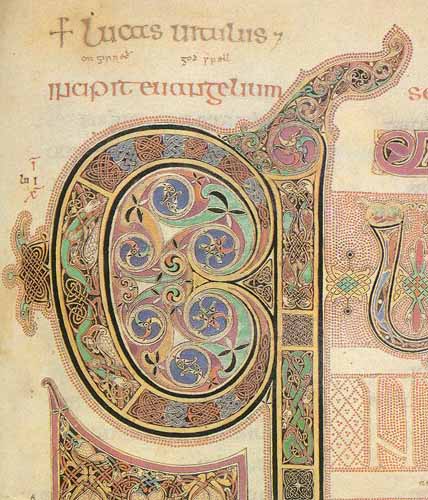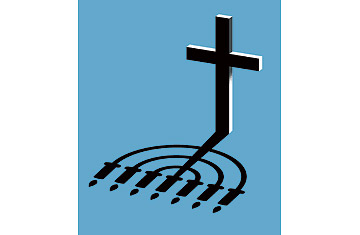CHAPTER ELEVEN: RETURN TO THE SEASHORE
It was Friday, and the travelers had been moving with some pace as they wanted to reach Kefer Nahum, the village named after the prophet Nahum, in time for the Shabbat service in the synagogue there. Built within a hundred yards of the sea, this synagogue of stone had been serving the community well as both a place of worship and a community center for all sorts of purposes, including studying Torah. Jesus, his brothers and mother, and the seven disciples arrived late in the afternoon at the fishing village, just in time to wash at the house of Simon’s mother in law, and head straight to the synagogue. When they arrived there was already singing going on, but when Jesus entered the place, it suddenly got quiet, except for the whispers, “there he is, the healer. He’s back.” As Jesus had come in the portico of the synagogue, there was an older man with a withered hand standing just in the doorway, as he did not want to become the subject of conversation. Jesus looked at the man and saw his need, but he also realized that the small congregation had turned around to see what he would do. Would he heal on Shabbat? The rules about work on Shabbat were complex, and basically they boiled down to the notion that anything that was not an absolute emergency should not be undertaken on Shabbat. It could wait until after sundown on Saturday.
Jesus walked into the middle of the synagogue and beckoned the man— “Come forward.’ Then Jesus scanned the congregation and asked “Is it lawful to do good or to do harm on Shabbat, to save life or to kill?” But no one responded. The room was deathly quiet, as if all were holding their breath waiting to see what would happen. Jesus looked around again, but this time in anger, grieved at the hardness of hearts there, Jesus said to the man “Stretch out your hand”.
Faltering, hesitating, shaking, the old man nonetheless stretched out his hand, and suddenly, quite visibly his hand was restored. Some of the Pharisees and Herodians there present were incensed and left at once, to begin to make plans about Jesus. This action had proved to them that Jesus could not be a godly man, for he did not respect Shabbat law. The healing clearly could have waiting a few hours. After all, the man had been waiting for much of his life. But in Jesus’ mind Shabbat was the perfect time to give a man ‘rest’ and ‘restoration’ from what ailed him. Wasn’t that the original purpose of Shabbat–to celebrate shalom, the wholeness and goodness of G-d’s creation?
After the service was over, James his brother came to Jesus saying “Was that wise? Couldn’t it have waited? Now you’ve alienated various of the religious and political leaders in the area. It’s bad enough that your family has to live with the shame of your leaving, but now, now the word ‘scandal’ will be attached to our name! Why did you have to do that here and now? “
Jesus’ response was direct and pointed: “Human beings weren’t made for Shabbat, so it could be observed. Rather Shabbat was set up for the good of human beings! And furthermore, the Son of Man is lord over Shabbat. G-d’s Dominion, his divine saving activity is breaking into our world, saving and healing people, and new occasions teach new duties, new ways of viewing and doing things. In any case brother, the heart of the Law is compassion, mercy.”
James was simply appalled at this. A very traditional Jew, and very observant of the Law, Jesus’ action seemed at best capricious and arrogant, and at worst a breaking of the Law of Moses. The other brothers were puzzled as well. How could Jesus do miracles, if not by G-d’s power, but would G-d sanction such irregularity on Shabbat?
As they were all leaving the synagogue, the disciples passed through a grain field as they headed up to the Simon’s mother in law’s house, and several of the disciples were so hungry they began plucking some of the grain which was ripe, and eating it. Two Pharisees who had left the synagogue with Jesus’ family saw this and asked Jesus “Why are your followers doing what is not lawful on Shabbat?”
Jesus replied: “Have you not read the story of David when he and his companions were hungry and needed food? David even entered the house of G-d in the era when Abiathar was the most famous high priest and they ate some of the Bread of the Presence, which only the priests were supposed to eat. Not only did David eat, but he gave some to his starving companions as well. Shabbat was made for the succor of humankind, humans were not made for Shabbat’s observance, and in any case the Son of Man is lord over Shabbat and its rules.”
“Who is this Son of Man?” asked one of the Pharisees, “and is he as great or important as King David?” Jesus did not answer, but rather left them to ponder the matter, and he and the family and disciples all entered the courtyard at the house of Simon’s mother in law. It was easy to see how uneasy, Jesus’ family was with all that had transpired on this Shabbat. Even Miryam was puzzled and did not know what to think, but unlike James who was ready to condemn Jesus, she stored these things up in her heart and meditated on their meaning.
James had already insisted to her that at first light they must go back to Netzerit. He was not comfortable with staying in Kefer-Nahum with the disciples and Simon’s family for long, and he made the excuse that the brothers would need to be back at work early on Sunday morning. Clearly, the word would be spread abroad soon that Jesus was a Shabbat-breaker, and his disciples were lax in their observance of the day as well. It did not bode well for the future, or so thought James and Jesus’ other brothers. James feared no good could come of this.
Jesus for his part, saw nothing wrong with anything that had happened that day, and simply enjoyed the evening meal and conversation with Simon’s family and the disciples. But his family, while they ate readily enough, were strangely silent, and could not be coaxed into talking, except Miryam had managed to relate about the family wedding and the miracle of the new wine that had happened there. Clearly she was trying to put a good face on things for Jesus’ sake. But it did not take a prophet to see that there were storm clouds already beginning to hang on the horizon, and heading Jesus’ way.


